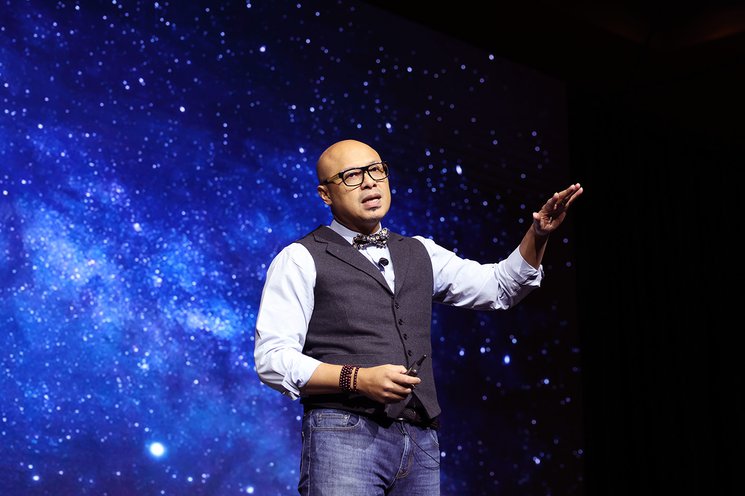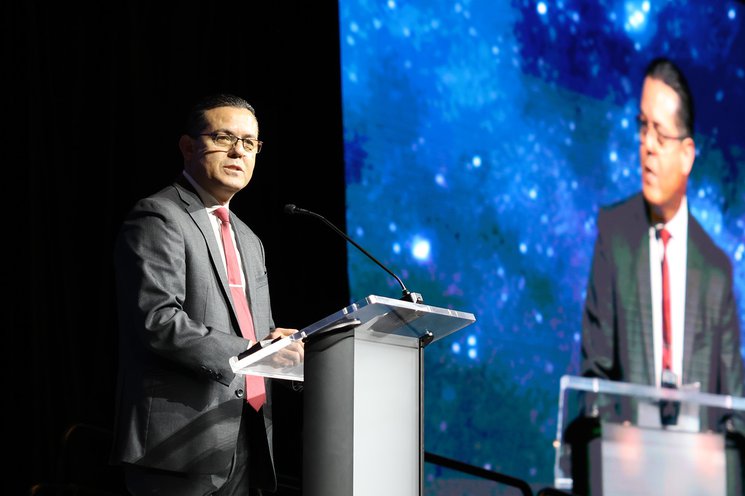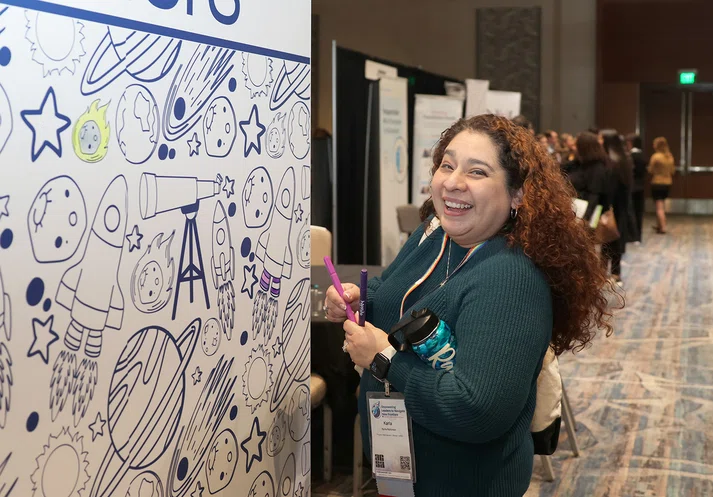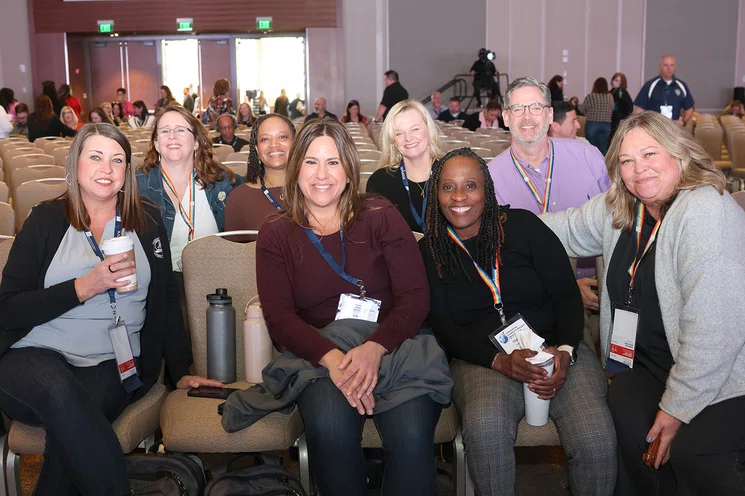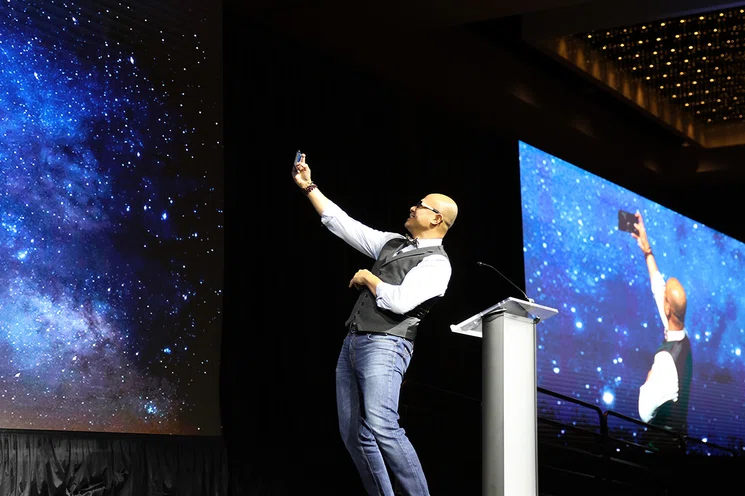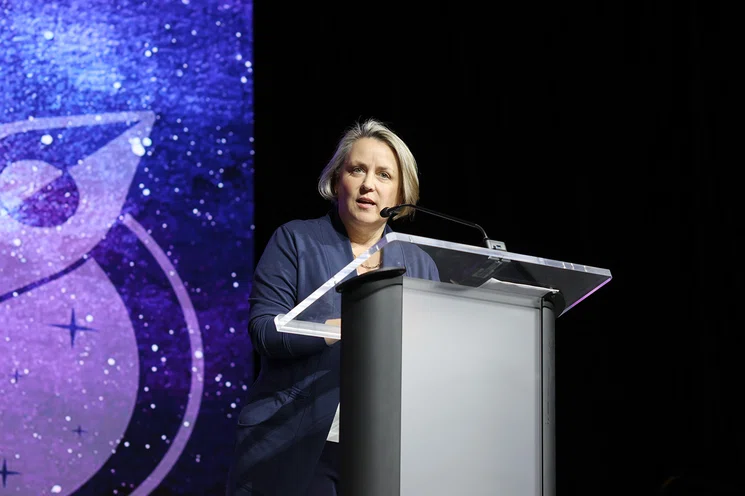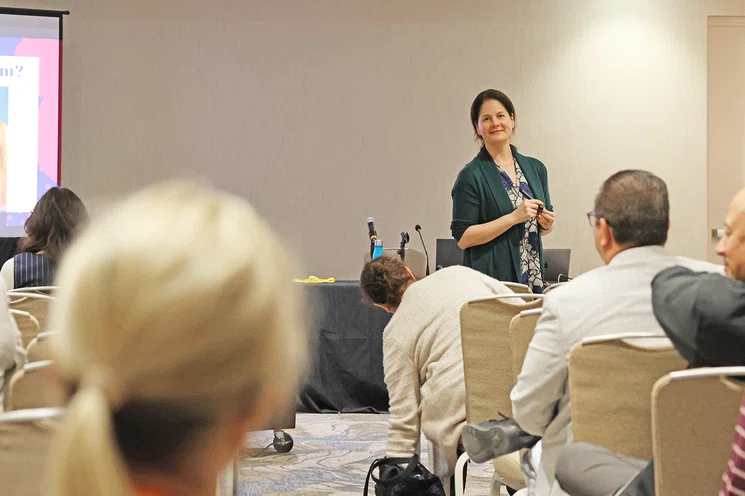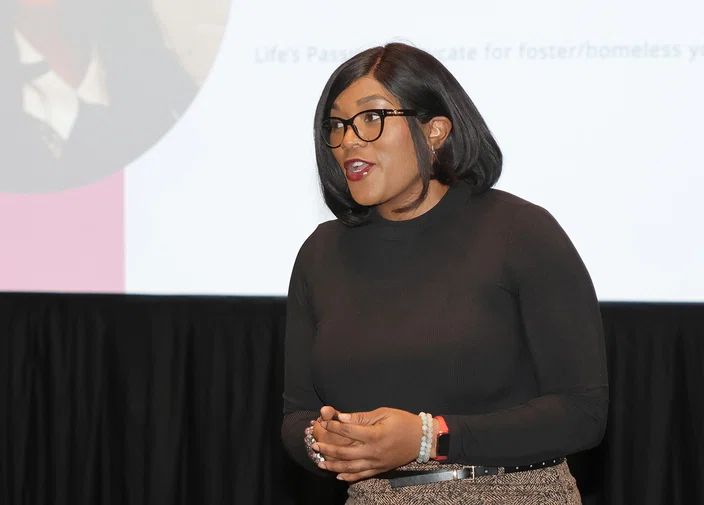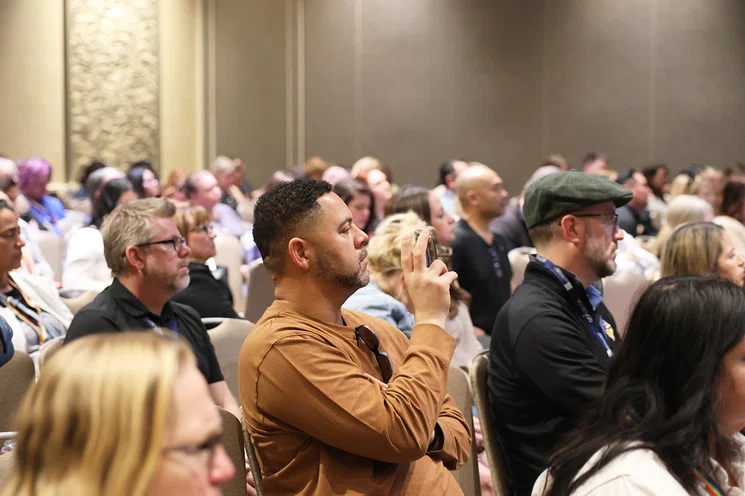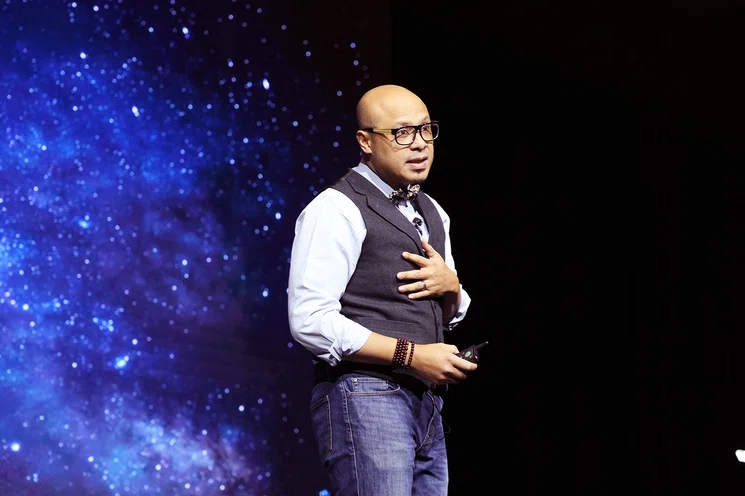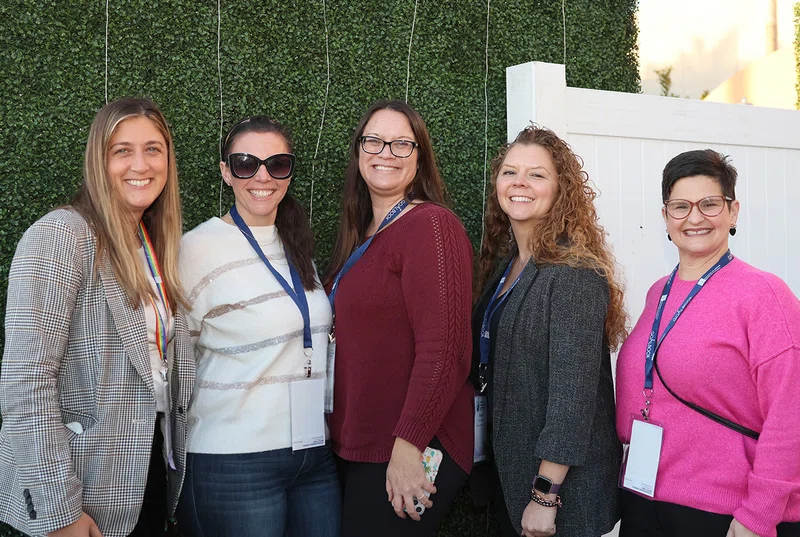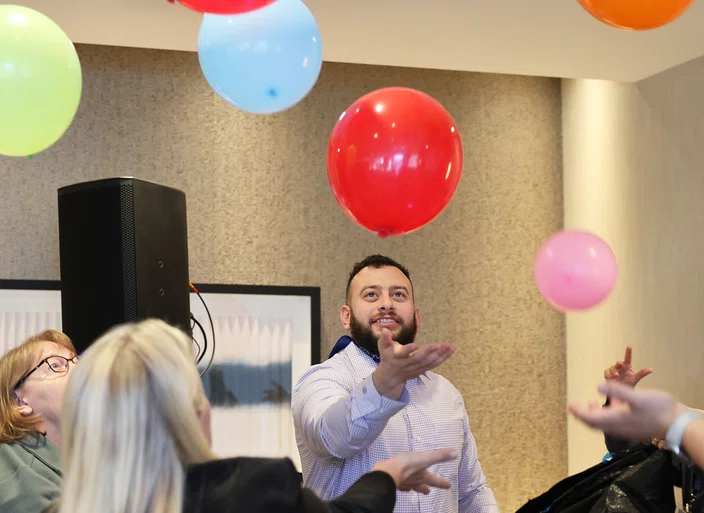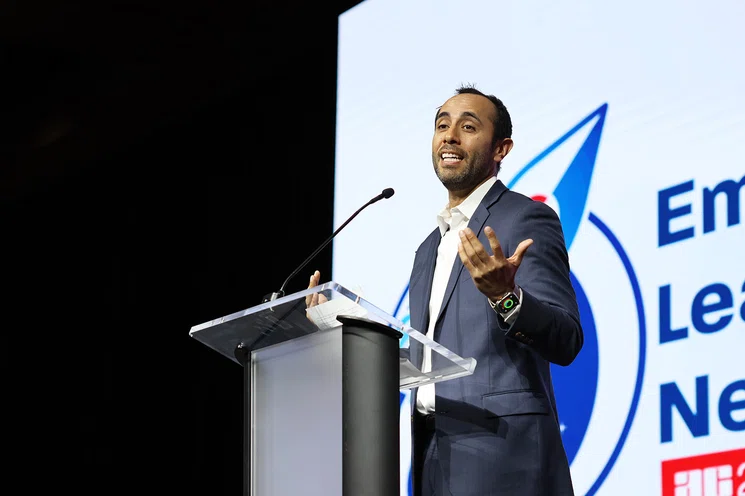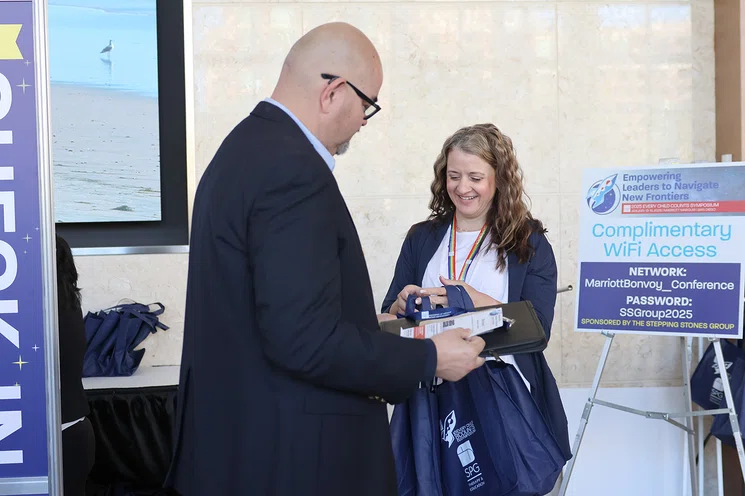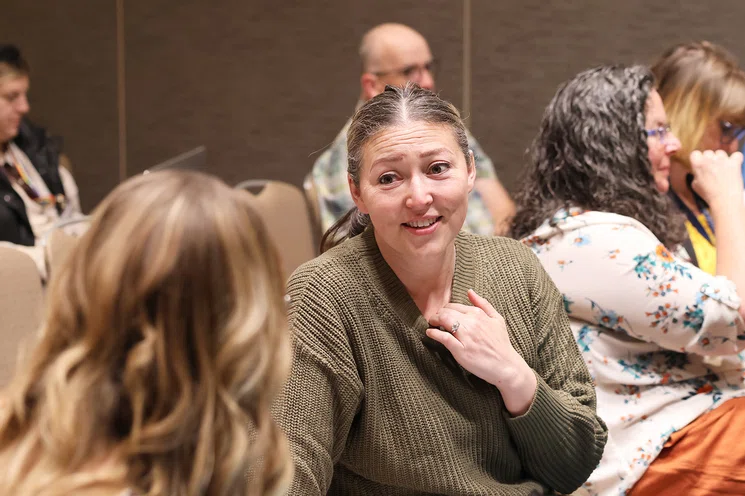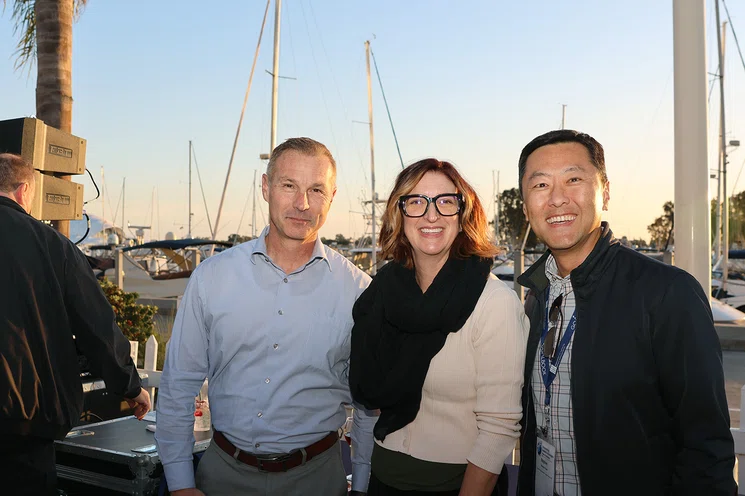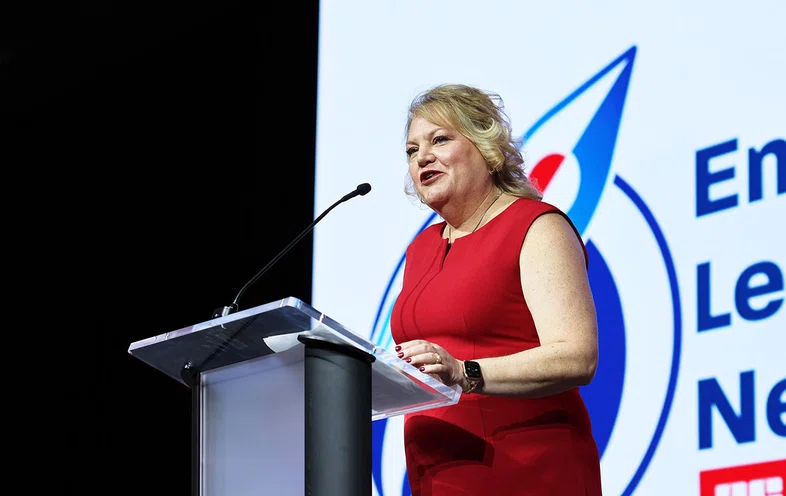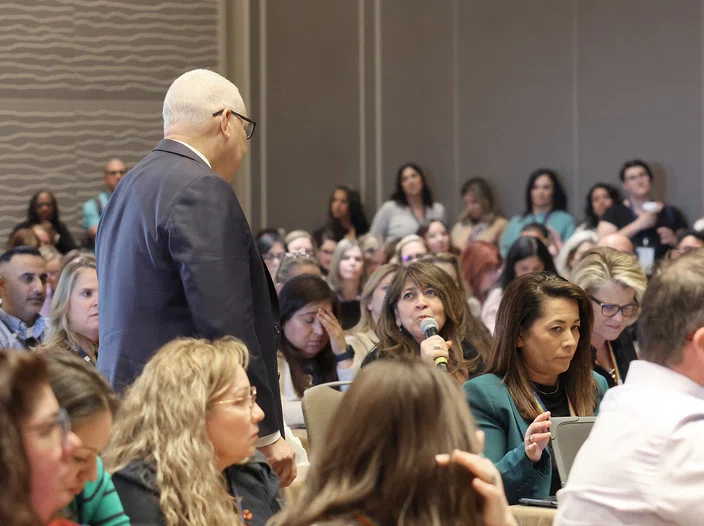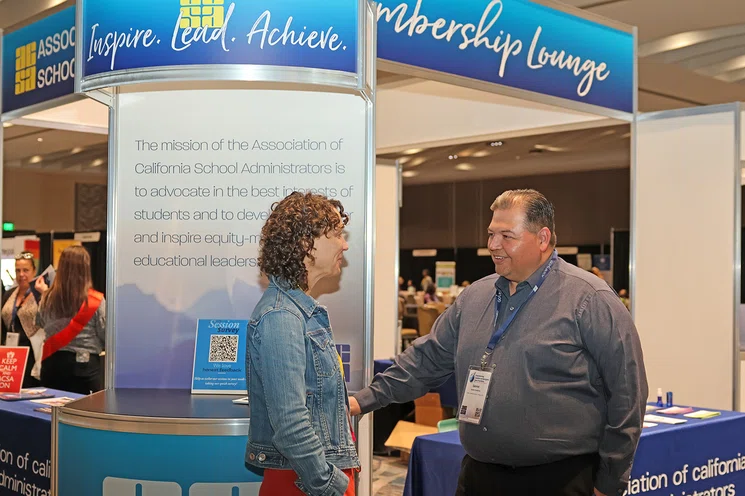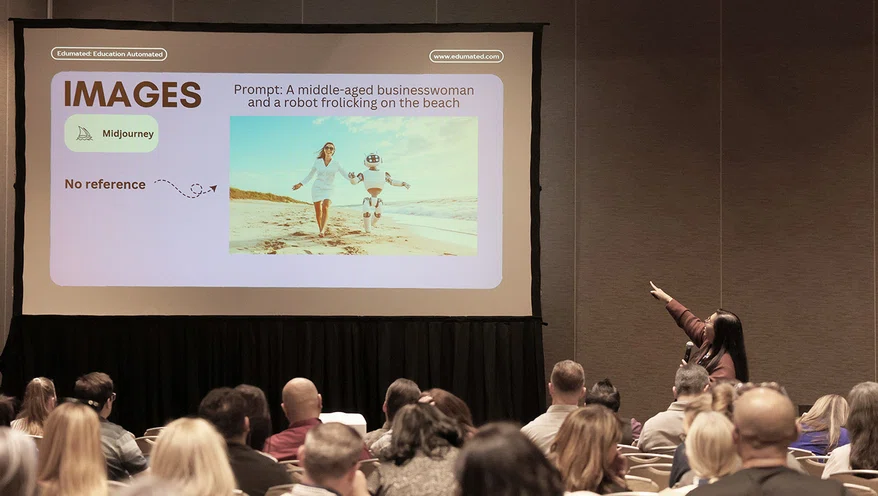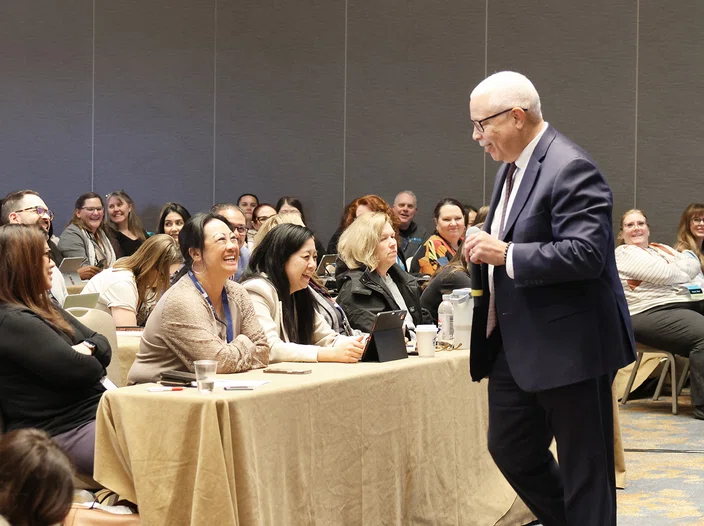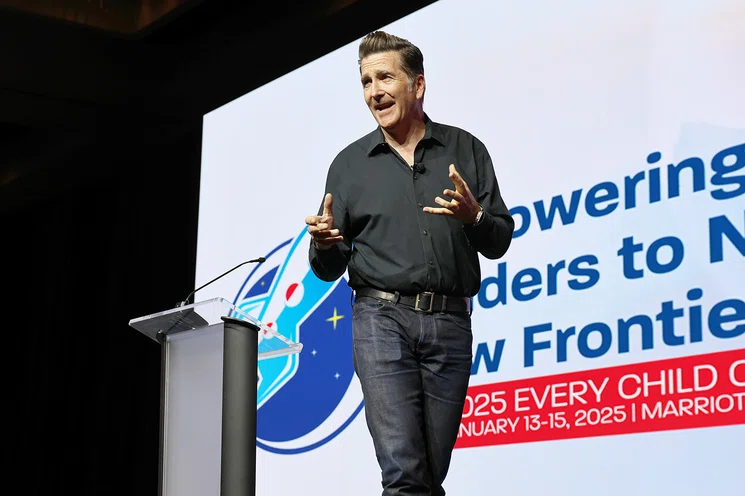A new frontier of learning
Symposium empowers educators to navigate the needs of students
January 27, 2025
More than 1,600 educators came to San Diego for ACSA’s 2025 Every Child Counts Symposium, where they explored this year’s theme, “Empowering Leaders to Navigate New Frontiers.”
The conference was held Jan. 13-15, less than a week after wildfires broke out in Los Angeles, causing devastation to school communities. Some attendees and presenters at the conference were impacted by the fires. Keynote Adam Steltzner was one of them.
“We never really know what the future has in store for us,” Steltzner said before showing an infrared satellite image of Altadena, Calif., which was leveled by fire. “One of those orange dots is my home.”
This year’s conference was aimed at empowering leaders to navigate whatever challenges come their way. Whether dealing with cell phones during class or combatting burnout among special education teachers, presenters shared strategies for overcoming some of the most persistent issues facing educators in special education and student services.
Every Child Counts Symposium Planning Committee Chair Charity Plaxton-Hennings said educators often find themselves facing challenges they weren’t prepared for.
“As administrators, we are constantly engaging and navigating these new frontiers that we never in our wildest dreams could imagine that we would have to address,” she said. “How do we empower you to navigate those new frontiers and those new situations and those new scenarios that we find ourselves in every day?”
Plaxton-Hennings then welcomed Steltzner to the stage, a person who has literally navigated new frontiers as the chief engineer of the Mars 2020 Mission & Rover Perseverance, which successfully landed on the Martian surface in 2021.
Steltzner was a local musician who barely passed high school before going to college and eventually earning his Ph.D. in engineering physics. He said it was curiosity that sparked his career and put him on the path to exploring new worlds. He also shared leadership lessons he learned while guiding his team to land on Mars in the middle of the COVID pandemic.
“Exploration is the fire that burns from the spark of curiosity. And that spark of curiosity is in all of us,” he said. “If we combine that native human curiosity with a culture of collaboration, there are very few limits to what a team can do.”
On day two, professor and author Emad Rahim shared his emotional journey that began in the killing fields of Cambodia and brought him to the U.S. as a refugee. As a young man, he struggled with street violence, gangs, drugs, poverty, family abuse and dyslexia, but he overcame these challenges and went on to earn multiple degrees including a Ph.D. with the help of the educators in his life.
“I didn’t do this by myself. I didn’t get here by myself,” he said, holding back tears. “I got here because of a community of people who refused to give up on me.”
The conference closed with former professional basketball player and college basketball coach Marke Freeman, who also serves as president of the Max-OUT Foundation, a nonprofit that teaches life skills to young people. Freeman shared her story of growing and thriving in life, despite adversity.
“The game has taken me all over the world,” she said. “But there is no bucket more powerful than the buckets we have the opportunity to score together every day.”
Attendees had more than 100 sessions to choose from with the latest information on how to best serve students.
“I’ve been in this business for years and I still learn new stuff,” said Cara Schukoske, executive director for Special Education with the San Diego County Office of Education, who’s a frequent attendee at the conference. “It’s always relevant to whatever’s happening within the field. And also to get to meet up with colleagues from across the state is invaluable.”
As a new director of Special Education in Warner USD, James Proby came to the conference with a specific question: How is a 504 different from IDEA? He was able to answer that question and even talk to a presenter after their session to get advice on creating templates for his district.
“I want to tell my district ... that I want to go next year because there’s so much stuff here,” Proby said, adding that the conference app gave him access to slide decks from concurrent sessions he was not able to attend. “I’m the new director of special education at my school district, and so I needed to know all about compliance.”
ADVERTISEMENT
“I’ve been in this business for years and I still learn new stuff.”
— Cara Schukoske, Executive director for Special Education with the San Diego COE and attendee at the 2025 Every Child Counts Symposium
Here are some of the big topics attendees learned about during this year’s Every Child Counts Symposium.
Student voice: Greg Fry, Sarah Notch and Mason Henricks from the San Mateo County Office of Education presented on the county office’s Launch Institute, a camp-like retreat where educators learn how to better support students from the students themselves. The session gave ideas for connecting with students in order to design better interventions to meet their needs. “We don’t often stop to think, who is the individual we are building this system for?” Fry said.
Social media: Colleen Villarreal from Perry & Villarreal, LLP, shared the many benefits of social media, particularly for special education students who may find online platforms more accessible. But social media can also be detrimental to student safety. Villarreal shared that students with disabilities are twice as likely to experience cyberbullying and 1.5 times as likely to be the perpetrator. Villarreal suggested strategies like having a cyberbullying response plan and teaching students the etiquette of posting online through role play. “Whatever you say or type should be something you should be willing to say to someone’s face,” she said.
Executive functioning: Jenny Ponzuric, Sandi Killackey and Kassie McOmber presented on executive functioning support needs for special education students. For problematic behaviors, like students who talk out of turn, Ponzuric said we need to make a distinction: “Is it a skill deficit or a performance deficit?” she said. “We want to make sure we’ve gathered enough data ... to really figure out, what is the actual skill deficit here, if there is one, or if this is a performance problem in which I need accommodations, reinforcements, reminders.”
Cell phone policies: DeAnna Glass with SPG Therapy and Education presented strategies for cell phone policies aimed at reducing distractions in the classroom. Attendees shared their struggles: verbal aggression from students, inconsistent policies across a school site, parents who text their children during school, and students who pull out a “back-up” phone when their first one gets confiscated. Glass suggested attendees use a combination of three different approaches — regulatory (full or partial bans), behavioral interventions (students are taught to manage their impulses) and collaborative/restorative (students are part of co-creating the rules and infractions are restorative). “Students are more likely to adhere when they are part of the process and co-creating the rules,” she said.
Artificial intelligence: Presenters Megan Hsu, Jason Hsu and Jenn Taylor showed attendees how AI can be the “robot sidekick” for special educators inundated with caseload management duties, e-mails and IEP meetings. Megan Hsu walked attendees through the process on how to use automation tools like Make.com to send IEP e-mail reminders with attachments. She urged educators to start using it now. “AI is happening. It’s not going away,” she said. “So the little bit you can learn at a time it will benefit you. It will benefit your students and the people that you work with.”
Homeless and foster youth: Presenter Felecia Tolliver asked attendees to “look past the hurt” to understand the unique needs of homeless and foster youth in schools. Tolliver said that when these students fall asleep in class or get into fights at school, “Their behaviors don’t tell the full story.” They may not have eaten, they may have gotten jumped on the way to school, or they may be on their fifth home placement in two years. She recommended ways to support these youth, including displaying awareness of their situation.
SPED burnout: Grace Fantaroni, professor at Point Loma Nazarene University, spoke about the many stressors special education teachers face, including difficult student behaviors, embattled parents and the caseload. “You go in to teach, you don’t go in to do paperwork,” she said. The demands are contributing to SPED educators leaving the field, even as the need for these teachers is growing. Fantaroni shared tips for building “resilience toolkits” for SPED educators, who can sometimes feel isolated at their sites.
Quick Takes: What was a standout session you attended at Every Child Counts?
“Helping Leaders Identify and Address Misconceptions About SDI” presented by Sara Evans
“There were some interesting concepts that were definitely new to the majority of us in the room. After 26 years in the field, I’m always looking for that challenge to my thinking, and it definitely provided that.”
—Angelica Thomas, Director of Special Education, Pittsburg USD
“Providing Effective Feedback on Assessment Reports for Administrators” presented by Jenny Ponzuric
“Part of my position is sitting in those IEPs. ... I do have to review those assessment reports and sometimes I need to learn whether I’m looking at a good report. The presenter actually provided some checklists that would be good for me, my other colleagues and even my school psychologist and other service providers, so they know whether they’re doing a good job on their reports.”
—Brandon Arevalo, Special Education Manager, Oxnard ESD
“A Lawyer’s Perspective on Emotional
Disturbance” presented by Jack Clarke, Jr.
“I was blown away. I hadn’t thought about mental health issues the way he presented them.”
—Carmen Durand, Special Education Coordinator, Santa Monica-Malibu USD
“504-Only Students: Identification and FAPE” presented by Sarah Garcia
“I think a lot of districts can struggle with their 504s ... Students aren’t getting referred as often as they probably should be. It was helpful, for sure, to get the lawyers’ perspective on the differences and how often we should be testing kids.”
—Nisa Shinagawa, Administrator of Health Services, Stockton USD




